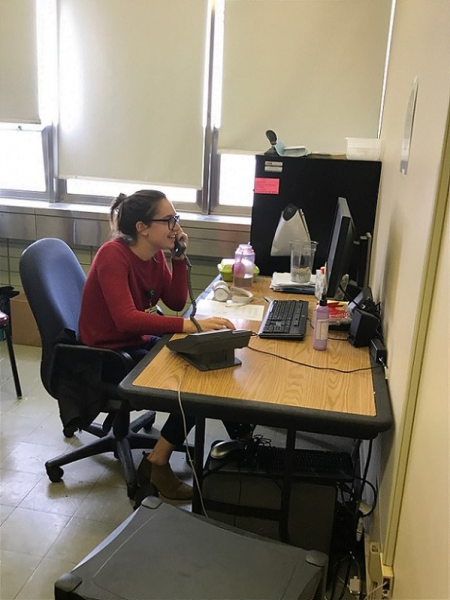Getting Things Done: Making Phone Calls to Make an Impact
 One of the biggest projects that I've taken on as an AmeriCorps National Health Corps Chicago member is to call patients to inform them of their sexually transmitted infection (STI) test results. Before I started my year of service, the Excel document that contained all the patients who tested positive for an STI in our clinic wasn't up-to-date and many patients needed more attempts to be contacted. It was intimidating, at first, to learn how to talk to patients over the phone in a respectful and ethical manner about a very sensitive topic. When I call patients about their results, I make sure that they have time to speak over the phone, that they are who they say they are, if they've had any sexual contact since their visit, and if they understand what I'm talking about when I tell them that they have either gonorrhea, chlamydia, or syphilis. It's obvious that these conversations that I have are very delicate and can leave a lot of patients upset and confused about how they got the infection. I've learned a lot through these talks about the best ways to approach the subject. I've learned to be direct and to the point, to be clear about where they can get treated and be nonjudgmental of the questions that they ask.
One of the biggest projects that I've taken on as an AmeriCorps National Health Corps Chicago member is to call patients to inform them of their sexually transmitted infection (STI) test results. Before I started my year of service, the Excel document that contained all the patients who tested positive for an STI in our clinic wasn't up-to-date and many patients needed more attempts to be contacted. It was intimidating, at first, to learn how to talk to patients over the phone in a respectful and ethical manner about a very sensitive topic. When I call patients about their results, I make sure that they have time to speak over the phone, that they are who they say they are, if they've had any sexual contact since their visit, and if they understand what I'm talking about when I tell them that they have either gonorrhea, chlamydia, or syphilis. It's obvious that these conversations that I have are very delicate and can leave a lot of patients upset and confused about how they got the infection. I've learned a lot through these talks about the best ways to approach the subject. I've learned to be direct and to the point, to be clear about where they can get treated and be nonjudgmental of the questions that they ask.
I remember talking to a patient once and at the end of the conversation, just before we were about to hang up, she asked what gonorrhea is. I was completely surprised. I never realized that I had just assumed everyone that I spoke to knew exactly what I was talking about when I said gonorrhea or chlamydia. I realized that it was really important for me to take time in these conversations to go over exactly what these infections are and why they are so important to get treated. These conversations are hard to have but they are incredibly important. Seeing the Excel file in disarray was troubling when I thought about all the patients that never got the message that their and their partner's healths were in jeopardy. So I went to service and called every patient three times, left messages, sent letters, and updated our files. At first, I wasn't totally sure I was really making an impact with all of my calls and conversations, but I started seeing the patients I called show up at our clinic for treatment. Some of them would even bring their partners! It was a great feeling to know that I was helping people take control of their health and get treated.
This blog post was written by NHC Chicago 2016-17 member Katarina Alajbegovic.
Katarina is a Health Educator at Fantus Health Center.